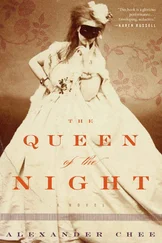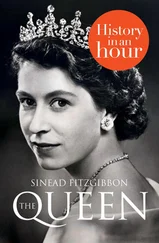Elizabeth II has chosen to age gracefully without the enhancements of cosmetic surgery, keeping her hairstyle essentially the same. “To be that consistent for that long is amazingly comforting,” said Dame Helen Mirren, who won an Oscar for her portrayal of the Queen in the 2006 film The Queen . “It shows such reliability. She has never lurched in one direction or another. It is self-discipline, which I think comes from within rather than imposed from without.”
She has kept a daily diary, but the contents won’t be available for historians until after her death. “It’s just like scrubbing your teeth,” she once said. “It’s not really a diary like Queen Victoria’s, you know … or as detailed as that. It’s quite small.” Friends who have heard her savvy opinions and sharp character sketches speculate that she may have committed those kinds of observations to paper, without betraying confidences.
To maintain her status, Elizabeth II must be extraordinary. The expectations of her subjects dictate that she must be human as well—if not exactly ordinary. Throughout her time as monarch she has worked to find a balance between the two dispositions. If she is too mysterious and distant, she loses her connection with the people; if she seems too much like everyone else, she loses her special mystique.
At a Buckingham Palace garden party in 2007, the Queen asked guests such standard questions as “Have you come far?” After one introduction, a woman said to the Queen, “What do you do?” Recounting the exchange to a group of friends several days later, Elizabeth II recalled, “I had no idea what to say.” In all her years of meeting people, it was the first time anyone had asked her that question.
In Britain, the power and the glory are kept separate. Elizabeth II reigns rather than rules, with a commitment to serve until death. Winston Churchill, who was the Queen’s first prime minister, put it this way in 1953: “A great battle is lost: parliament turns out the government. A great battle is won: crowds cheer the Queen.” Those holding the power—the prime ministers who lead the government when their party achieves a parliamentary majority—come and go with the vagaries of elections, while the Queen endures as head of state. She lacks the power to govern, but she has a sort of negative power. Because she is there, no prime minister can be number one. “She makes a dictatorship more difficult, she makes military coups more difficult, rule by decree more difficult,” said Robert Gascoyne-Cecil, the 7th Marquess of Salisbury, a Conservative politician and former leader of the House of Lords. “It is more difficult because she occupies space, and due process must be followed.”
She also has the positive power of influence: “the right to be consulted, the right to encourage, and the right to warn.” In public she influences through her example, by setting a high standard for service and citizenship, by rewarding achievement, and by diligently carrying out her duties. Tony Blair, the tenth of her twelve prime ministers, called her “a symbol of unity in a world of insecurity … simply the best of British.”
There is never a moment in her life when Elizabeth II is not the Queen, which puts her in a solitary position and affects the behavior of everyone around her, even her family. She holds neither a passport nor a driver’s license, she can’t vote or appear as a witness in court, and she can’t change her faith from Anglican to Roman Catholic. Because she stands for national unity and must avoid alienating her subjects, she needs to remain scrupulously neutral—not just about politics but even seemingly innocuous matters such as favorite colors or songs or television shows. But she does have strong preferences and opinions that occasionally emerge.
A straightforward streak is one of Elizabeth II’s appealing qualities. “When she says something she means it. And the public picks that up and admires it,” said Gay Charteris, the widow of Martin Charteris (Lord Charteris of Amisfield), a senior adviser to the Queen for three decades—one of the many people I spoke to who are close to the royal family.
I was fascinated to think that from the mid-nineteenth century through the first decades of the twenty-first century—for 123 of the past 174 years—the monarchy has been dominated by two formidable women, Queen Victoria and Queen Elizabeth II. Between them they have symbolized Britain far longer than the four men who occupied the throne between their reigns. Matriarchs face special demands, which in the case of Elizabeth II have meant carrying out duties expected of a man and a woman.
As a career woman, Elizabeth II has been an anomaly both in her generation and in the British upper class. She had no model for balancing the roles of monarch, wife, and mother. All too often the requirements of her job, combined with her ingrained sense of duty, pulled her away from motherhood. Her laissez-faire attitude toward child rearing had unfortunate consequences, and her children have given her more than her share of heartache. She has occasionally revealed some of her anguish, but more often has kept it to herself, letting off steam on long walks with her dogs. “There is a weed in Scotland nicknamed the Stinking Willie that is deeply rooted,” said Lady Elizabeth Anson, a cousin of the Queen. “I have seen her go into a field and pull up lots of that.”
Prince Philip has said that “supporting the Queen” defined his life as the longest-serving consort in British history. As they move through public events, they resemble a royal Fred and Ginger with their expert choreography of turns and cues that transmit lively interest and look effortless. He also provides the spritz of vinegar to her Windsor cream, with his pointed and often irreverent comments. “Prince Philip is the only man in the world who treats the Queen simply as another human being,” said Martin Charteris. “And, of course, it’s not unknown for the Queen to tell Prince Philip to shut up. Because she’s Queen, that’s not something she can easily say to anybody else.”
The routine of the Queen’s life—outlined a year ahead, mapped in detail six months in advance—has been practical and reassuring. One of her friends, John Julius Cooper, the 2nd Viscount Norwich, jokingly said the secret of her equanimity might be “never having to look for a parking place.” In the view of one of her private secretaries, “She has two great assets. First of all she sleeps very well, and secondly she’s got very good legs, and she can stand for a long time.… The Queen is as tough as a yak.” She finds refuge for four months at intervals throughout the year at her country estates. On each return to Sandringham, her staff “present[s] the house to her as she left it,” said Tony Parnell, who worked there for fifty years. “If bits and knickknacks were left on chairs, they are kept on chairs.”
The story of Elizabeth II turns on what she has made of the life that was given her. I wanted to know what elements of her character and personality and upbringing have helped her carry out her unique role. Who is she, what are her days like? How did she learn on the job to deal with politicians and heads of state as well as coal miners and professors? How has she experienced the world while living in a virtual cocoon? What is her approach to leadership, has it changed, and if so how? How has she dealt with mistakes and setbacks? Her family? How has she maintained her equilibrium and kept her basic values? How has she lived the most public of lives but preserved her privacy? Would she ever abdicate in favor of her eldest son, Prince Charles, or even her grandson Prince William? How, in the winter season of her life, has she managed to bring stability and vigor to the monarchy?
I first met Queen Elizabeth II in Washington, D.C., in May 2007. The occasion was a garden party at the British ambassador’s residence, and it was a warm and cloudless day. Some seven hundred Washingtonians turned out—the men in their best suits, many of the women wearing hats.
Читать дальше












